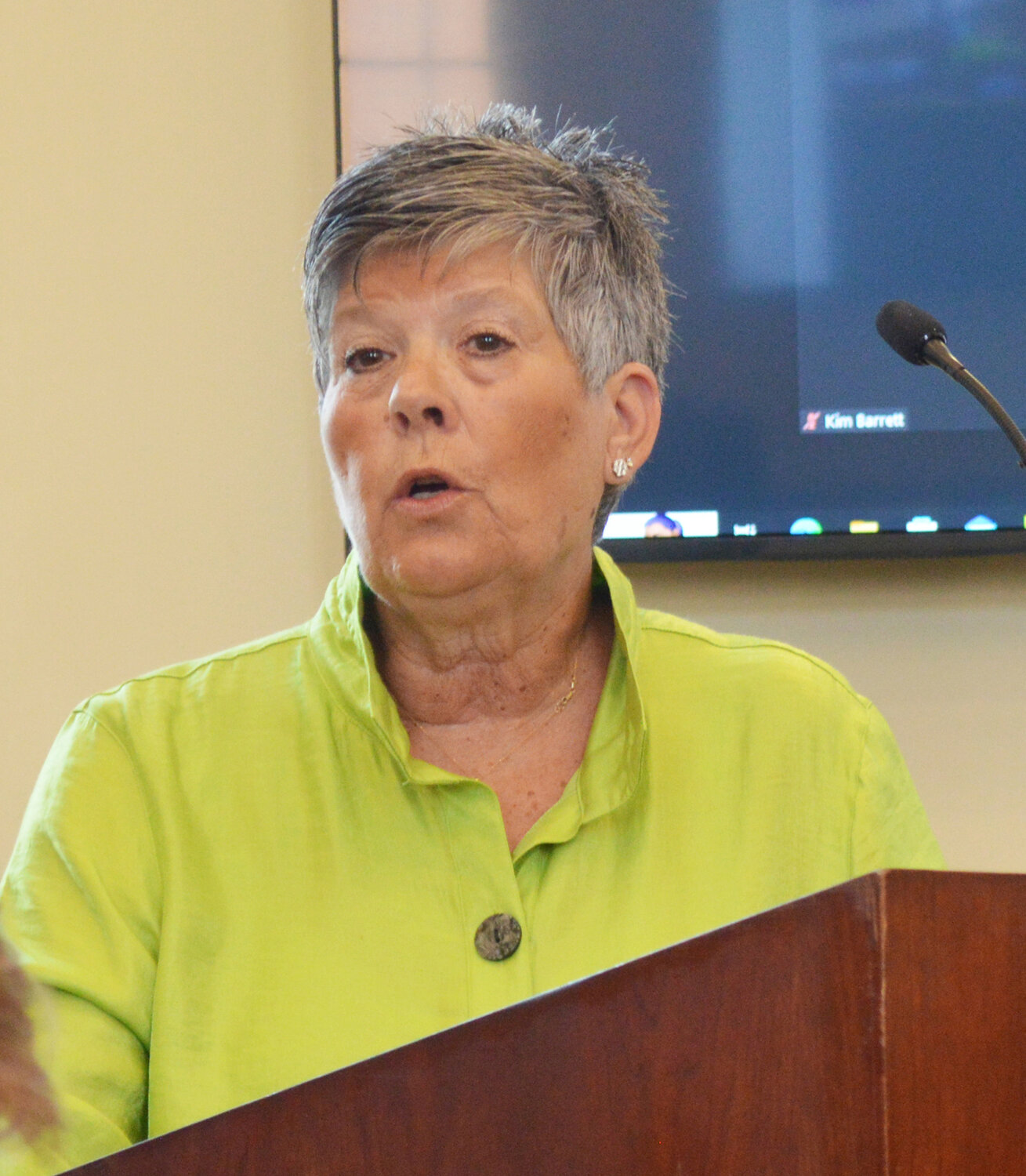Town manager addresses Georgetown candidate’s election ‘discrepancies’
As she prepared to complete her second tenure on Georgetown Town Council on Monday, Angela Townsend shared her take on last month’s municipal election.
On May 11, she lost a bid for the mayor’s seat to the five-term incumbent, Bill West, 380-345. But Ms. Townsend said there are “a lot of discrepancies” regarding the vote.

You must be a member to read this story.
Join our family of readers for as little as $5 per month and support local, unbiased journalism.
Already a member? Log in to continue. Otherwise, follow the link below to join.
Please log in to continue |
Town manager addresses Georgetown candidate’s election ‘discrepancies’
GEORGETOWN — As she prepared to complete her second tenure on Town Council on Monday, Angela Townsend shared her take on last month’s municipal election.
On May 11, she lost a bid for the mayor’s seat to the five-term incumbent, Bill West, 380-345. But Ms. Townsend said there are “a lot of discrepancies” regarding the vote.
Specifically, she mentioned a higher number of voters who had registered compared to the number who ended up voting. She noted that the voter registration deadline was May 8, and she received the final listing two days later.
“So, to me, the final listing that was received should have been everyone that could legally vote,” she said.
Then, upon receiving a copy of everyone who indeed cast a ballot, Ms. Townsend said she color-coded the names, according to who was registered and who wasn’t.
“And I came up with 36 that … kind of stood out to me,” she explained. First, “there were 25 people that weren’t registered on the final listing but walked in the door, and they were allowed to vote. Their names are written down at the bottom of the listing that the clerks had. But they weren’t on the final listing of being registered. (Plus,) there were some that do not live in town.”
On Wednesday, town manager Eugene Dvornick addressed Ms. Townsend’s point, outlining voter qualifications listed in Section 3.4.1 of the town charter. They state: “Any person shall be qualified to vote who, on the date of the election, is a U.S. citizen, has attained age 18, is a bona fide resident of the Town of Georgetown, has not been adjudged mentally incompetent and has not been disenfranchised pursuant to Sections 3 or 7 of Article V of the Constitution of the State of Delaware.”
“So, on the day of the election, people are allowed to vote if they can prove they are a resident of the town of Georgetown,” he said. “I can assure you — and this is the same way we have done elections in the past — people were allowed to vote that day if they could prove that they owned property, they were a bona fide resident and lived in the town of Georgetown.”
In addition, Ms. Townsend said there may have been two felons who voted, as well as two from the ACE Center, which is not a residence, and several whose homes were listed as the Classic Motel.
According to Mr. Dvornick, felons may vote if their sentence has been fully discharged and if they were not convicted of a disqualifying felony — murder, manslaughter, crime against public administration like bribery or any sexual offense, among others.
“I do not know (about) the convicted felons she is (referring) to. We don’t ask that question when somebody comes in to vote,” he added.
Further, information about voters without fixed addresses is laid out on the state Department of Elections website, Mr. Dvornick said.
“Anyone lacking a fixed residence or who is homeless and is otherwise qualified to vote in Delaware may register by completing the proper registration form and providing two pieces of identification containing their name. One must include a mailing address, which may be a shelter or agency,” he continued.
Another concern brought up by Ms. Townsend is that two voters reside outside of Georgetown.
“And what happened with that is the wife came in early and was allowed to vote,” Mr. Dvornick said. “Then, we realized she wasn’t allowed to vote, and that afternoon, her husband came in to vote. So, rather than create a stink, the husband was allowed to vote. I would rather not disenfranchise a voter.”
According to the official count of the election, the 35-vote differential remains the same, so the two out-of-town ballots were counted.
Ms. Townsend, a former town clerk for Georgetown who served on council from 2002-05 and 2020-24, stated she has always asked the town manager “prior to approving the Board of Elections (members) if they have been trained, and I’ve always been told, ‘Yes, they have.’”
She went on to say that she does not blame those members — Jane Hovington, Elaine Reynolds and Shirley Hitchens.
“To me, they weren’t properly trained on how to run an election,” Ms. Townsend said. “I think the town should seriously look into it for next year, to have a fair election and to really train our Board of Elections, so they are very competent when they take over that position.”
In response, Mr. Dvornick said the board representatives did have proper instruction.
“The training took place on Monday, May 5, and it was conducted by the Sussex County Department of Elections. So, the Board of Elections was trained,” he said.
Nevertheless, Ms. Townsend sent copies of her findings to the board and to Mr. Dvornick, town solicitor Stephanie Ballard and Delaware Department of Elections commissioner Anthony Albence.
“I knew my actions would not change the outcome of the election,” she said. “I did not intend for them to change the outcome of the election. My personality is that I am a very fair person. I love to treat people fairly.”
To hopefully clear up the matter, Mr. Dvornick said he plans to give a slide presentation about the election/registration process at the next council meeting June 25.
But “to make assumptions that this was in any way inappropriate is incorrect,” he said.


 By
By 



